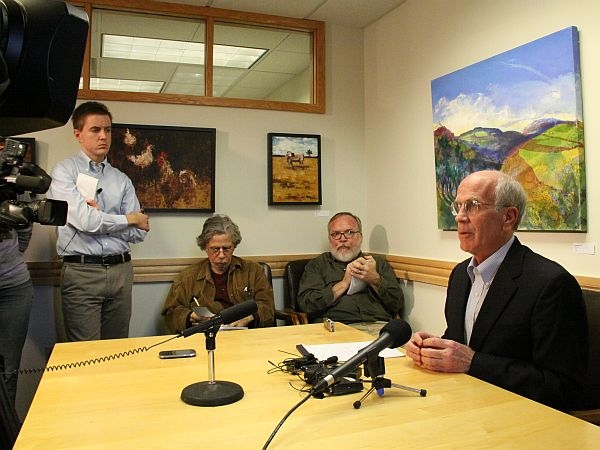
As the lame-duck Congress reconvenes Tuesday, Congressman Peter Welch is outlining his priorities for the session. But Vermont’s lone congressman is skeptical a deal will be reached to avert what is being called the looming fiscal cliff.
If the economy were to go over the so-called cliff, economists say we could be looking at another recession. And the Congressional Budget Office has said increases in taxes for everyone and across-the-board spending cuts would delay any economic growth.
Democrats want to end Bush-era tax cuts above $250,000, which are set to expire, but Republicans oppose any increase in tax rates and want to cut entitlement spending like Medicare and Medicaid.
"It was my way or the highway for the past two years, and it doesn’t work," Welch told reporters Monday.
After winning re-election handily, Congressman Welch says voters sent a message to lawmakers in Washington: to stop partisan gridlock, and to broker a budget agreement that includes revenues.
"It was also clear in exit polls that a lot of people who supported [Mitt] Romney thought it was totally right that people who’ve been doing really well help us with the debt and the deficit," Welch says. "So I return to Washington with a lot of hope."
With a lot of hope but, he adds, a healthy dose of skepticism, too, that Congress can strike a deal to avoid tax increases and spending cuts.
"Up to this point there has been no negotiation. It’s been an all-or-nothing approach," he says. "One side has said revenues are off the table. In fact, the Ryan budget cuts would have lowered Mitt Romney’s effective tax rate to 1 percent. They also increase Pentagon spending and they turn Medicare into a voucher program. So there has been no serious discussion."
Welch says that the discussion instead had been polarized. And Congress, he argues, should be willing to go over the so-called fiscal cliff if it means finding a solution that would strengthen the middle class. "The leadership will or won’t get an agreement that they can present to Congress," Welch explains. "If they don’t get an agreement, they’ll still be able to work on negotiations and the new Congress will have the opportunity to act."
There’s very little time to act, though, before January 1st. The White House and Congress have just a few weeks to figure something out.
Earlier: Local Governments Worry About Going Over Fiscal Cliff